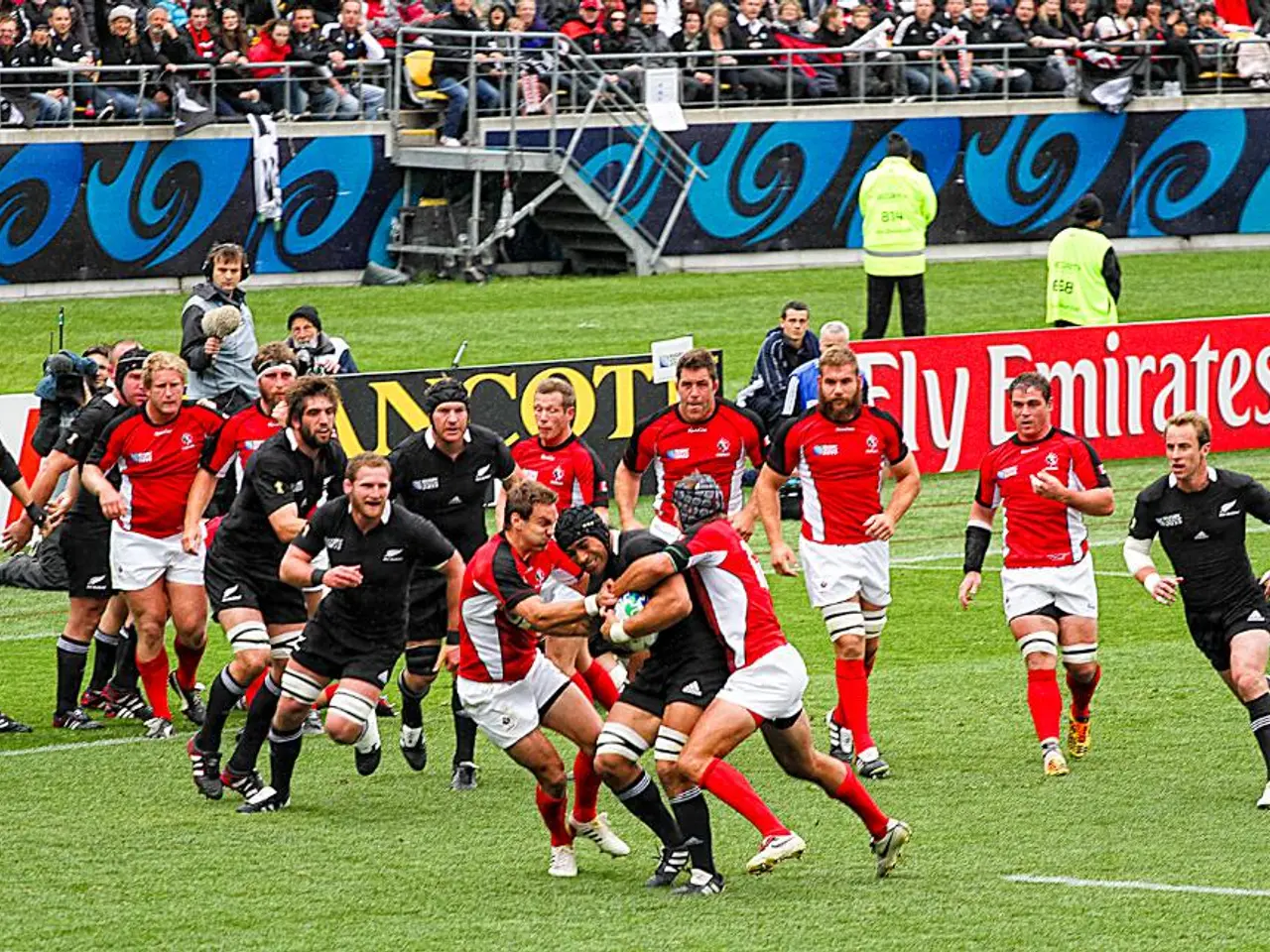A minimal survey suggests that a mere 16% of the populace is committed to defending Germany regardless of circumstances.
In a recent survey conducted by the polling institute Forsa for the German editorial network Deutschland, attitudes towards military defense in Germany have shown a significant shift. The survey involved around 1,000 citizens and asked about their willingness to defend the country in the event of a military threat.
The survey results indicate a divide in opinions among Germans, but they also suggest a growing awareness among citizens of potential military conflicts. About 59% of Germans would probably not or definitely not be willing to defend Germany in the event of a military attack, while a majority (59%) are prepared to defend another NATO member if it is attacked.
The perceived threat of military attacks may influence Germans' willingness to defend their country or allies, the survey suggests. Approximately 27% of Germans consider it very or rather likely that Germany will be militarily attacked within the next five years, and a substantial number of Germans believe in the possibility of such an attack.
The survey findings suggest a concern about potential military conflicts among Germans. An additional 22% of Germans would probably do so, and approximately 16% of Germans are definitely ready to defend the country in the event of a military threat. However, women make up 72% of the group that would probably not or definitely not be willing to defend Germany, indicating that they are less likely to be willing to do so compared to the overall population.
Germany's current attitude is one of increased readiness and military strengthening in response to perceived Russian threats. The German government is decisively investing in defense to deter potential attacks and fulfill NATO commitments.
Significant defense budget increases have been observed, with Germany raising its defense budget from about $56 billion in 2024 to $93 billion in 2025 (about 2.4% of GDP), with plans to reach $175 billion by 2029. This includes army modernization, new weapons, and military infrastructure, reflecting a strong commitment to build deterrence and defense capability.
The German constitution was amended in 2025 to exempt military and intelligence spending above 1% of GDP from debt limits, signaling a long-term commitment to higher defense outlays and military expansion. The Bundeswehr is expanding personnel, aiming to add tens of thousands of soldiers through voluntary recruitment rather than conscription. The number of volunteers has risen about 20% recently, motivated by heightened threat awareness due to the conflict in Ukraine and NATO demands.
For the first time post-WWII, Germany is permanently stationing a full armored brigade abroad (in Lithuania), as part of its "Zeitenwende" strategy to strengthen NATO’s eastern flank. The current Chancellor Friedrich Merz and Defense Minister Boris Pistorius adopt a more assertive stance about preparing to defend Germany and NATO, contrasting with the more cautious tone of the previous government under Olaf Scholz.
Germany is also increasing military-industrial cooperation with Ukraine, funding the production of long-range drones and other weaponry, reflecting a proactive approach to containing Russian aggression beyond its borders. Despite growing defense efforts, there is no broad consensus in Germany about the seriousness of the military threat. Some political voices, particularly on the center-left (SPD), emphasize diplomacy over military build-up and caution against alarmism that might escalate tensions.
In summary, Germany’s current attitude is one of increased readiness and military strengthening in response to perceived Russian threats, balancing this with ongoing political debate about the best defense strategy and the role of diplomacy. Public unease about security is rising, but the government is decisively investing in defense to deter potential attacks and fulfill NATO commitments.
The survey results indicate a growing awareness among Germans about potential military conflicts, as they consider it possible that Germany may be militarily attacked within the next five years. The German government's increased investments in defense, including military-industrial cooperation with Ukraine, reflect an intention to build deterrence and defense capability against perceived threats.








